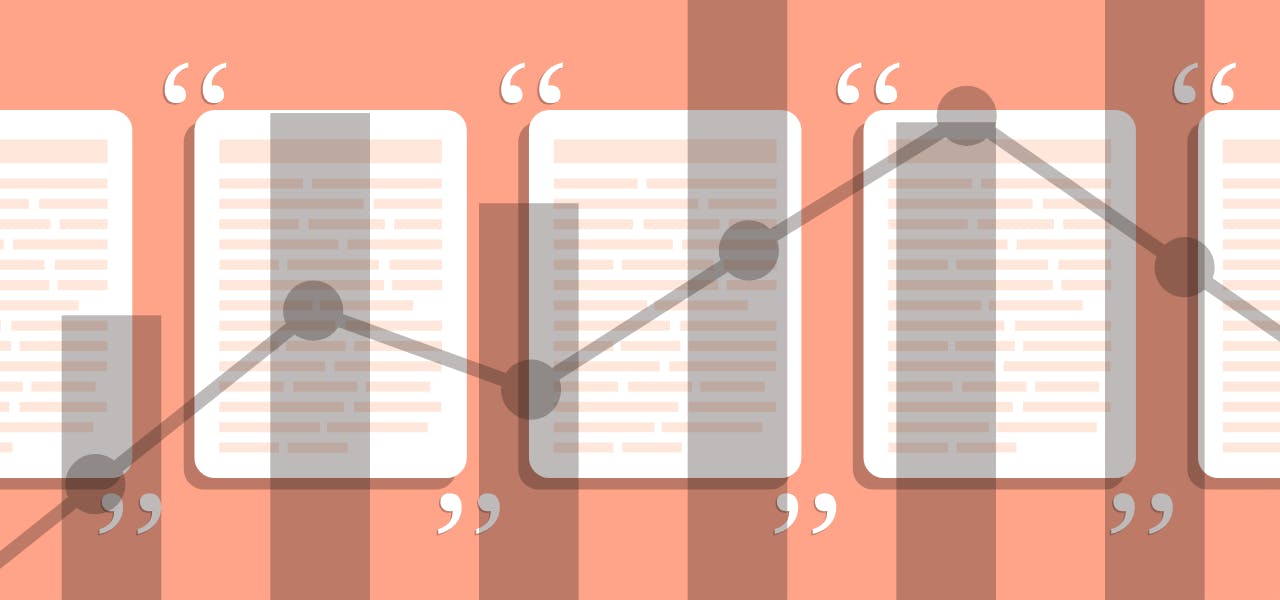There are two main types of thinking philosophies regarding news: the “no news is good news” paradigm and the “any news is good news” way of thinking. When it comes to research articles, many scholars choose “any news” method of getting their hard work out in front of an audience. The hope is that when news coverage discusses the research, it will result in increased citations, and therefore, a higher scholarly reputation.
This does work, in part, but it depends on the medium that is used to disseminate the research to an audience and the tone of the news coverage. The correlation between increased citation counts and getting your research talked about may show a positive increase, but if the news reports are not favorable to your work, this might not be reflected on your reputation you were looking to get.
What’s So Important About Citations, Anyway?
Traditionally, the goal of the research has always been to come up with outcomes that make an impact on society in general or the scope of study in particular. While this “impact” measurement has always been qualitative previously, the Digital Era has ushered in ways to turn subjective determinations of scholarly impact and reputation into quantitative numbers through findings like citation counts.
Citation analysis allows for objectivity, as it lists references that send readers to relevant research in the topic. Citations have always been part of research papers, so why not use these references to acknowledge the importance someone else’s research had on yours? And then why not count these acknowledgments to build a framework of important papers in a subject?
The number of citations in a field, during a specified time frame, becomes the citation count, which leads to part of a scholar’s impact. Many researchers have learned the best way to boost this impact is to get their work covered in some form of news medium.
Types of News Coverage
Scientific journals have traditionally been the main way that researchers disseminate their knowledge to the scientific community, but with the importance of making an impact predominant now, this coverage must expand beyond those in the academic landscape. Now scholars must turn to the media to cast their net to as wide an audience as possible, but this is made easier with open access publication and social media forums, like:
● Widespread newspapers
● Local newspapers
● Personal social media forums like Facebook
● Professional social media forums like LinkedIn
● Mixed social media platforms like Reddit or Instagram
● Scholarly blogs
● Open access publications
The more a scholar’s research is discussed online, the more people who learn about his or her work and become interested in using it to further their own knowledge. This results in an organic increase in citation indicators.
Correlations Between News Coverage and Citation Count
When a scholar’s work is covered by mass media, whether through news organizations or social media sharing gone “viral,” the result is an increased citation count, at least when the research is performed in the United States. The publicity effect is enough to account for higher citations, but that does not mean the work has a stronger impact on the field studied. It just means that when research is represented in the news media, the authors of that research benefit from an increase in citations.
Because a higher citation count links to an increased scholarly reputation, this is a coveted factor from researchers. If your goal is to get your work covered by a news medium, you should compile your work naturally but then ensure you maximize it for search engine optimization and create a strong following in your personal and professional social media accounts. The more often your work is discussed in any of these forums, the higher your citation count is likely to be.
Improve Your Citation Count With Impactio
Citation indicators are an important part of scholarly reputation, but they’re always changing. They’ll continue to evolve, but the idea behind using them to help determine your scholarly impact is consistent. As a researcher, it’s part of your job to do what you can to help improve these citation indicators, which you can do with programs like Impactio.
By taking an active role in building news coverage, you take charge of your own indicators. All news can be good news, and by watching your citation numbers in real-time, you can adjust your proactive measures and the news mediums you use to get your work out to your audience!
